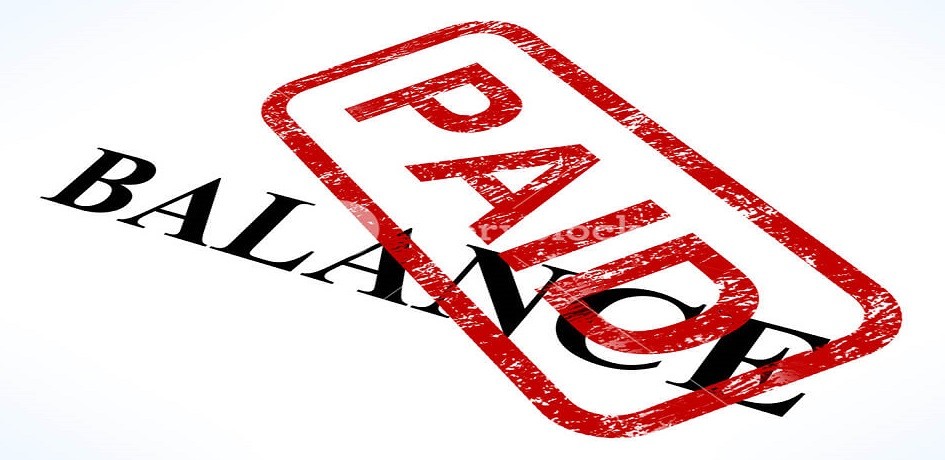Student-centric advice and objective recommendations
Higher education has never been more confusing or expensive. Our goal is to help you navigate the very big decisions related to higher ed with objective information and expert advice. Each piece of content on the site is original, based on extensive research, and reviewed by multiple editors, including a subject matter expert. This ensures that all of our content is up-to-date, useful, accurate, and thorough.
Our reviews and recommendations are based on extensive research, testing, and feedback. We may receive commission from links on our website, but that doesn’t affect our editors’ opinions. Our marketing partners don’t review, approve or endorse our editorial content. It’s accurate to the best of our knowledge when posted. You can find a complete list of our partners here.
Paying Off Student Loans Early
 By
Emily Wong
By
Emily Wong 
Emily Wong is a writer at Scholarships360. She’s worked as a social media manager and a content writer at several different startups, where she covered various topics including business, tech, job recruitment, and education. Emily grew up and went to school in the Chicago suburbs, where she studied economics and journalism at Northwestern University.
Full BioLearn about our editorial policies

If you’re feeling bogged down by student loan debt, you might be considering paying off student loans early. The average student loan debt is $37,718 at graduation and takes about 20 years to pay off. That means that many graduates don’t end up paying off their student loans until after age 40.
While it may take some sacrifice and planning, freedom from student loans can feel like a weight off your shoulders. However, it’s not the best choice for everyone. Before we get into how to pay off student loans early, let’s talk about whether it’s the right decision for you.
Why you shouldn’t pay off your student loans early
Although having your student loans paid off can be essential in decreasing your debt-to-income ratio and living more stress-free, it’s not always a great idea to rush the process. Here are some signs that you should hold off on paying off your student loans early.
When you haven’t saved for retirement
In the process of paying off your student loans, it’s easy to lose sight of preparing for the future. However, when it comes to retirement, it’s important to start early. Before you start getting ahead on your student loans, start thinking about saving for retirement.
If you have a 401k, make sure that you’re maxing out your employer’s matching contributions. If you can’t afford that, try to contribute as much as possible. While you may feel uneasy investing your money before paying off debt, the return on your retirement savings will likely outweigh the costs of your student loans.
According to , the average student loan interest rate is 6.87%. Contrastingly, you can expect a return from your 401k of about 5-8%. For that reason, many borrowers benefit from dedicating some funds to investing, as long as they’re on track with their loan payments.
Related: Should I use my 401k to pay off student loans?
When you don’t have emergency savings
Even when managing debt, it’s still important to prioritize your own financial security. Unexpected financial troubles can come up anytime, and you’ll want to be prepared. Many recommend keeping an emergency fund of three to six months of expenses before you start putting extra money toward your other financial goals.
When you have high-interest debt that you haven’t paid off
When it comes to paying off debt, you’ll want to prioritize your payments in order of interest rates, from highest to lowest. Typically, student loans have much lower interest rates than other debts, especially if they’re government-issued. If you have any other outstanding debt, like credit cards, for example, you’ll want to make sure that’s taken care of before you start paying off more modest loans.
How to pay off your student loans early
If you’ve evaluated your financial situation and decided you want to pay off your student loans early, there are a few steps you can take in order to achieve your goal.
Pay extra toward your loans each month
If you want to pay off your loans faster, you can start by paying more than the required amount. You don’t have to overwhelm yourself by setting lofty goals to contribute twice as much as usual. However, try to get into the habit of putting in any extra cash you have from the month.
If you never have any cash left over, you can re-evaluate your budget to look for wiggle room. See if there’s any subscriptions you don’t use or expenses you can cut. If you have extra time, you can also look for odd jobs or a side hustle to earn some extra income. However, if you happen to find a contract job, be sure to put aside some money for taxes before devoting the rest of your paycheck to student loan payments.
Ask your employer about student loan assistance
Many companies offer student loan assistance as an employee benefit. For example, the personal finance company SoFi offers $200 per month loan reimbursement for employees. Similarly, the insurance company New York Life allows employees to earn $170 per month toward student loans, up to a maximum of $10,200 over five years of employment. The US government also launched the Federal Student Loan Repayment program, as well as the Public Service Loan Forgiveness program. Both programs help public service employees to pay off their student loans.
Don’t forget to ask your employer if your company offers a similar program. Even if they don’t offer it currently, they may be more inclined to start a program in the future if they know there’s demand. Alternatively, if you’re in the process of looking for a job, you can scope out companies that offer generous student loan benefits.
Refinance your loans
Refinancing student loans is an effective method that many borrowers use to get a better deal after graduation. Especially if you’re employed and financially stable, you’ll likely be able to get a much better deal on your loan as a graduate. If you decide to refinance your student loans, you’ll want to shop around to find the best lender.
Make sure that refinancing is the right decision for you. Refinancing your loan will make you ineligible for federal programs, such as income-driven repayment or student loan relief. Therefore, you’ll want to make sure that you’re financially stable and unlikely to need any assistance in paying your loans in the future.
Other resources for paying off student loans
Student Loan Forgiveness Programs
Perhaps you qualify for a student loan forgiveness program? Check out our handy guide to find out more.
Student Loan Repayment Plans
If you want to find out more about which repayment plan is best for you, read our guide to learn more.
Loan Consolidation and Refinancing
Loan consolidation and/or refinancing may be options for you, so do your homework and learn the key differences before making a move. Check out this guide to learn more.
Paying off your student loans can be a stressful process, and it’s important to devise a strategy of how to handle your payments. With the proper planning and budgeting, you’ll be saying goodbye to your loans in no time!
Read more: How much student loan debt is too much?
Frequently asked questions about paying off student loans early
What is a grace period for student loans?
Is there a penalty to pay off student loans early?
Do you pay less taxes when you owe on student loans?





